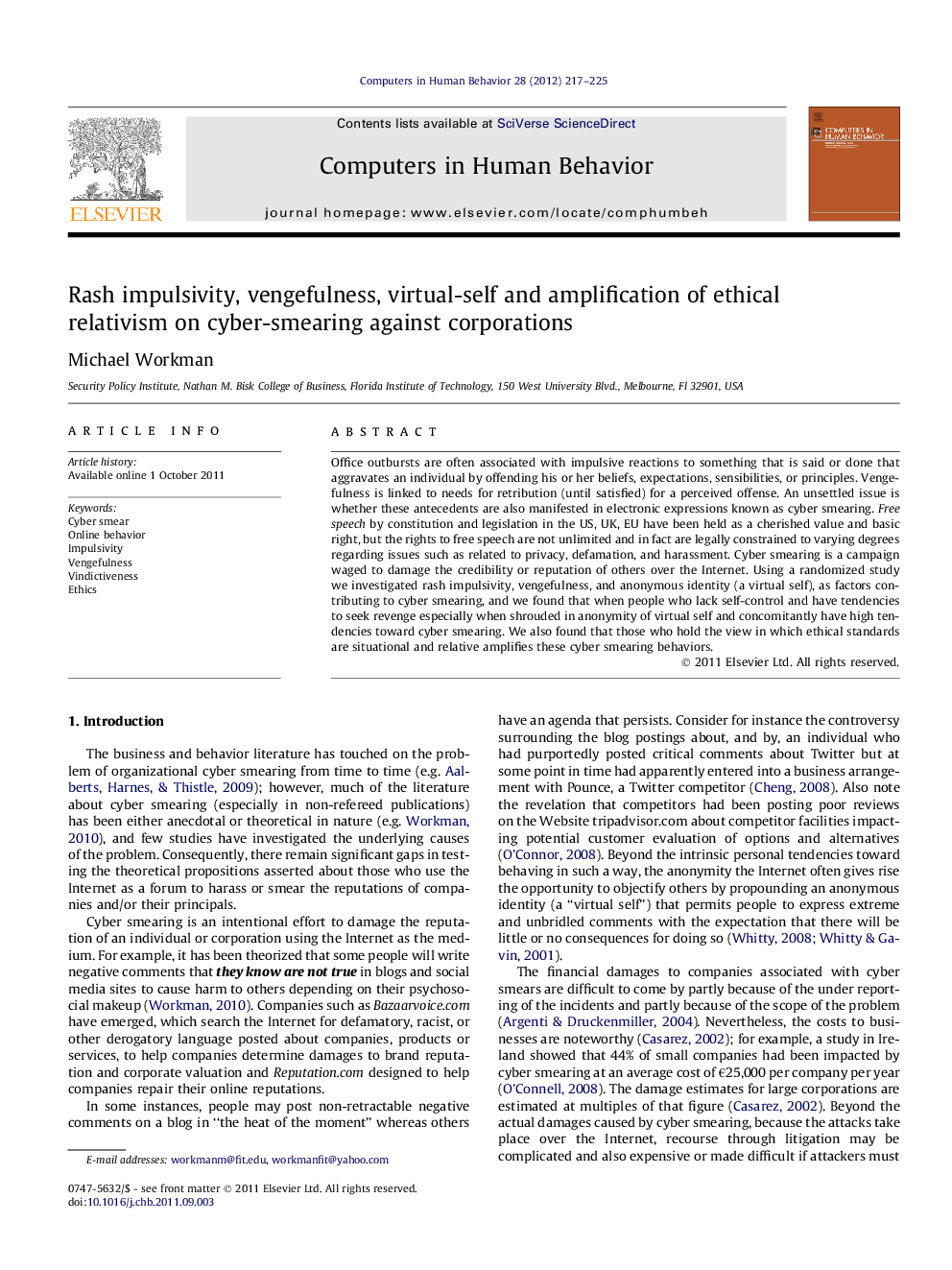| Article ID | Journal | Published Year | Pages | File Type |
|---|---|---|---|---|
| 351565 | Computers in Human Behavior | 2012 | 9 Pages |
Office outbursts are often associated with impulsive reactions to something that is said or done that aggravates an individual by offending his or her beliefs, expectations, sensibilities, or principles. Vengefulness is linked to needs for retribution (until satisfied) for a perceived offense. An unsettled issue is whether these antecedents are also manifested in electronic expressions known as cyber smearing. Free speech by constitution and legislation in the US, UK, EU have been held as a cherished value and basic right, but the rights to free speech are not unlimited and in fact are legally constrained to varying degrees regarding issues such as related to privacy, defamation, and harassment. Cyber smearing is a campaign waged to damage the credibility or reputation of others over the Internet. Using a randomized study we investigated rash impulsivity, vengefulness, and anonymous identity (a virtual self), as factors contributing to cyber smearing, and we found that when people who lack self-control and have tendencies to seek revenge especially when shrouded in anonymity of virtual self and concomitantly have high tendencies toward cyber smearing. We also found that those who hold the view in which ethical standards are situational and relative amplifies these cyber smearing behaviors.
► Defamation has little empirical study relative to online expressions – we did one. ► We explored the buttress between free speech and opinion against illegal and unethical blogging. ► We found various psychological characteristics lead to greater cyber smearing tendencies. ► Cyber smearing factors interacted with learned ethical systems to amply these tendencies. ► Our conclusions contrast SLAPP with other more suitable countermeasures.
